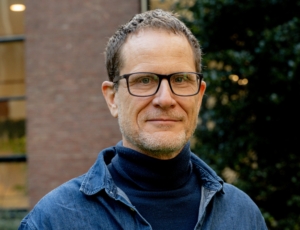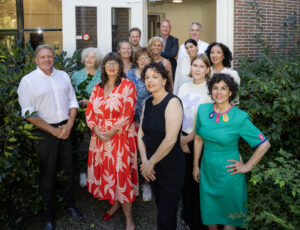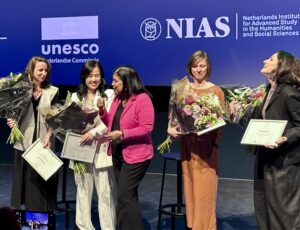In the first seminar of the new academic year, cognitive scientist Henkjan Honing will elaborate on the cognitive building blocks of musicality, and raise the question of whether elephants, whales and birds actually make music. The seminar takes place on Thursday 10 October 2013.
About the Seminar
Many studies of the evolution of music concern the question of what defines music. Can birdsong, the song structure of humpback whales, a Thai elephant orchestra, or the interlocking duets of Gibbons be considered music? In trying to answer this question, it is important to separate the notions of ‘music’ and ‘musicality’. Musicality can be defined as a natural, spontaneously developing trait based on and constrained by our cognitive and biological system, and music as a social and cultural construct based on that very musicality.
However, it is still a challenge to demarcate precisely what makes up this trait we call musicality. What are the cognitive mechanisms that are essential to perceive, make and appreciate music? Only when we have identified these fundamental mechanisms are we in a position to see how these might have evolved. In other words: the study of the evolution of music cognition is conditional on a characterization of the basic mechanisms that make up musicality.
About the Speaker
Henkjan Honing is Professor of Music Cognition from the University of Amsterdam. He was awarded the fifth Distinguished Lorentz Fellowship and will hold this position for the academic year 2013/14.
About NIAS Seminars
NIAS Seminars are organised by the Rector of the Institute. They are meant to appeal to interested parties from a wide range of backgrounds and are aimed to encourage closer contact within the Dutch academic world.
NIAS Seminars take place in the Lecture Room (NIAS, Meijboomlaan 1, Wassenaar, telephone 070-512 27 00). This seminar starts at 11.00 hours and ends at 12.30. Everyone is welcome to attend the seminar and join the discussion. However, since changes in the programme may occur, please let us know if you wish to attend. For further information, contact Communication.



